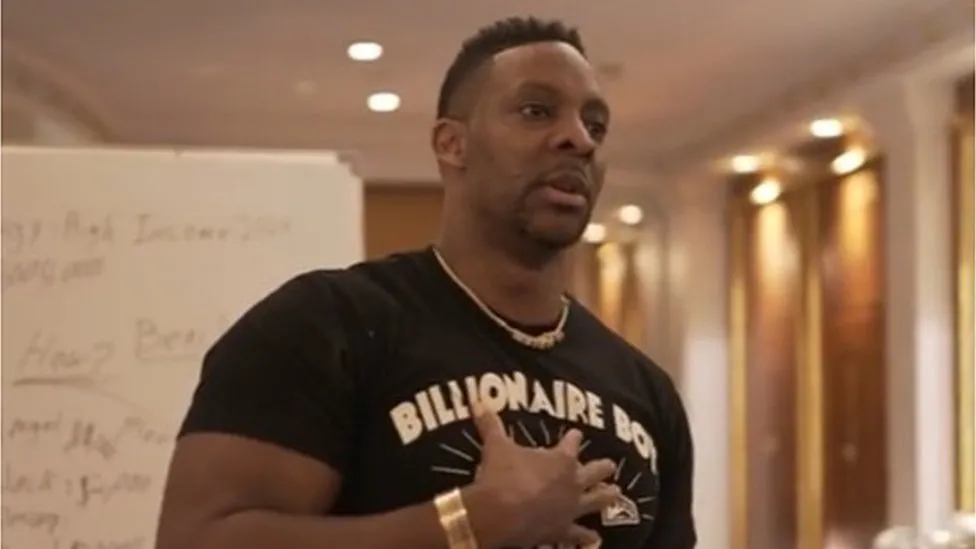Feb 24 (BBC/GNA) – Celebrities including Piers Morgan, Nigella Lawson and Oprah Winfrey have criticised the use of AI deepfake online adverts that gave the false impression they had endorsed a US influencer’s controversial self-help course.
The adverts promoted the so-called “Genie Script”, the centrepiece of a “manifestation” course sold for $37 (£29) a time by Wesley “Billion Dollar” Virgin.
He describes himself as a motivational coach who has 1.1 million followers on Instagram and claims to be worth $40m.
The videos, used to lure buyers to purchase the product, claim the Genie Script is a “missing” Hebrew Bible scripture of just 20 words that could – supposedly – change your life.
Its promotion blends pseudo-science, conspiracy theories and the manipulation of celebrity likenesses – all to draw in customers desperate for the chance to take control of their fate.
One advert used footage of Nigella Lawson chatting about her recipes and work as a TV chef.
“I went on vacation and met this man at a very exclusive party. His name was Wesley and he handed me this hidden Bible page that was locked away in somebody’s room,” the voice said.
But it was not that of Lawson, it was the barely indistinguishable mimicry of an AI voice generator.
Real footage is overlaid with a deepfake impersonation of the food writer’s voice, making it sound like she was attributing her success directly to Wesley Virgin’s guidance.
The AI voice suggested that the script revealed by Virgin unlocked the secret to manifestation, a practice which involves thinking about or writing down your aspirations to turn them into reality.
“He said: ‘Repeat this mantra every single day of your life… Since that moment I’ve become a multimillionaire all on my own.”
A spokesperson for Lawson branded the advertisement “fraudulent” and “of great concern”.

Another advert showed what looked like an excerpt from the Piers Morgan Uncensored TV show and employed similar techniques.
The voice described “a lost old scripture that has been used by kings to attract vast riches, miraculous healing and unparalleled love”, and it looked like the mouth had been manipulated to fit the speech.
The real Piers Morgan told the BBC the advert was “another example of a very worrying trend of public figures being misused by deepfake AI manipulators for financial gain”.
“The real victims will be members of the public who unwittingly buy these products believing the celebrity endorsements are genuine,” he said.
“Reviews” of the script appear online, where users praise Virgin and say they hope the script will help them with escaping poverty or spending more time with their children or grandchildren.
Both adverts, which appeared on YouTube, have now been taken down.
A spokesperson for YouTube said it had “long prohibited the use of manipulated media, including deepfakes and other forms of doctored content to deceive or mislead users”.
Having reviewed these videos, Prof Hany Farid, a digital forensics expert at the University of Berkeley, said they were “clearly deepfakes”.
“Of course, as the technology to create these fake audio and video improves, it will become increasingly difficult to detect these fakes. And the technology is improving at a stunning rate,” he added.
Another advert, this time featuring Oprah Winfrey, was discovered in the Ad Library for the Meta platforms Facebook and Instagram. Genuine footage had been overlaid, again with AI providing fake dialogue sounding like the US chat show queen.
“I want to give you a 20-word script… think of it like installing a new operating system into your mind that’s programmed to make you rich,” the AI Oprah says.
A spokesperson for the real Oprah told the BBC she did not have anything to do with Virgin’s product.
“We seek to protect consumers from the false association of Ms Winfrey and the misuse of AI to create such false advertising,” they said.
Meta said it took action on the adverts it found to be in violation of its policies.
When the BBC contacted Wesley Virgin he said the adverts were “the work of affiliates”, people who can earn money by helping him make sales, and that he was “in the process of banning them all”.
GNA/Credit: BBC